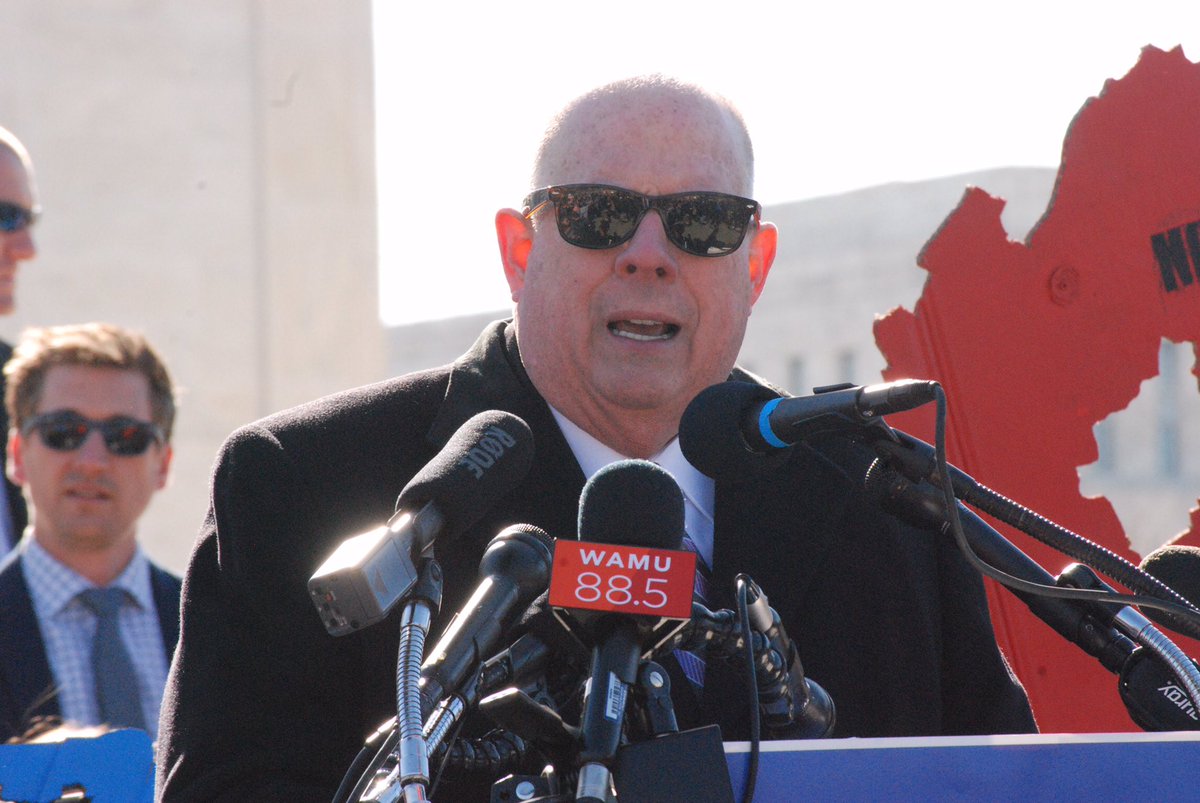WASHINGTON — Maryland voters, political groups and state elected officials all rallied together outside the Supreme Court Tuesday morning to support a case being heard on partisan gerrymandering in the state’s congressional districts.
Held on the steps of the Supreme Court, the Fair Maps Rally, sponsored by Common Cause and the League of Women Voters, drew hundreds of supporters to raise public awareness of transparent redistricting and to protest against unfair congressional districts in states across the country.
While supporters chanted and spoke outside for several hours, oral arguments for two Supreme Court cases on gerrymandering were heard inside.
The Maryland case, Benisek v. Lamone, focused on whether the redistricting of the state’s 6th Congressional District was constitutional after the district map was redrawn in 2011 following the release of 2010 political census data, flipping it from being a solid Republican district to majority Democratic in the 2012 election.
Maryland now has seven Democratic representatives and one Republican in the House.
The case from North Carolina, Rucho v. Common Cause, dealt with the redrawing of the entire state’s congressional map after it was found to be racially gerrymandered in 2016.
Although a new map drawing was ordered, the mapmaker created a 10-3 Republican majority in the House.
While both cases involve districts being drawn to favor one party over another, some who oppose gerrymandering say that it’s not a partisan issue.
“This is not a fight between right and left; this is a fight between right and wrong,” said Maryland Republican Gov. Larry Hogan, who was elected in a heavily Democratic state.
Agreeing with Hogan was former Republican California Gov. Arnold Schwarzenegger, who jointly filed an amicus brief with him to the Supreme Court supporting O. John Benisek, the plaintiff of the case who argued against the constitutionality of gerrymandering.
“The villain is not the party; it’s the politician,” Schwarzenegger said. “We must terminate gerrymandering.”
Free and fair elections are the basis of democracy, Hogan continued, and both parties are guilty of unfairly drawing districts to ensure more representation.
“Representatives shouldn’t be picking their citizens, citizens should be picking their representatives,” Hogan added.
Lone Republican Rep. Andrew Harris of Maryland’s 1st District represents the whole Eastern Shore, as well as parts of Baltimore, Harford and Carroll counties.
Constituents at the farthest points of the 1st District are geographically more than four hours’ drive from the other end of the district, but are still represented only by Harris.
“I benefited from gerrymandering, but it’s about time that it ends,” Harris said. “It disenfranchises people.”
Karen Hobert Flynn, president of Common Cause, argued that gerrymandering takes power from the people and gives it to politicians.
“That is not democracy,” Flynn said. “Voting is sacred … and no liberty is more important than our right to vote.”
Without fairness in the electoral system, democracy doesn’t work, Montgomery County resident Steve Daubresse, protesting with the League of Women Voters, told Capital News Service.
The problem is a power issue that won’t fix itself, said Virginia Kase, CEO of the League of Women Voters, adding that justice can be found in the form of fair district maps.
To create a more fair redistricting process, Hogan said that he’s been pushing for the establishment of a nonpartisan redistricting commission to be signed into law this session of the Maryland General Assembly, but the legislature has not brought it to a vote yet.
Without action from the state legislature, Maryland can only rely on the Supreme Court’s decision to bring gerrymandering to an end, Hogan said.

